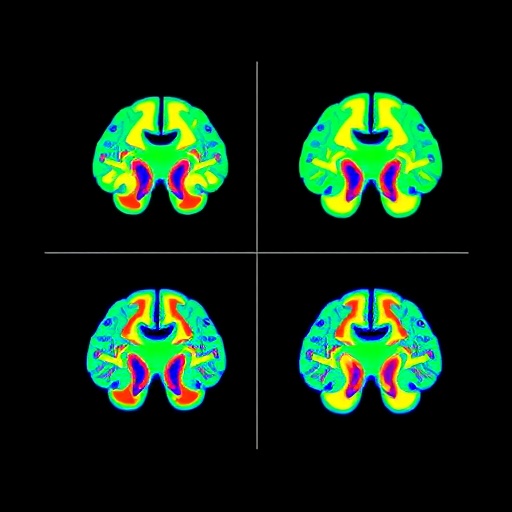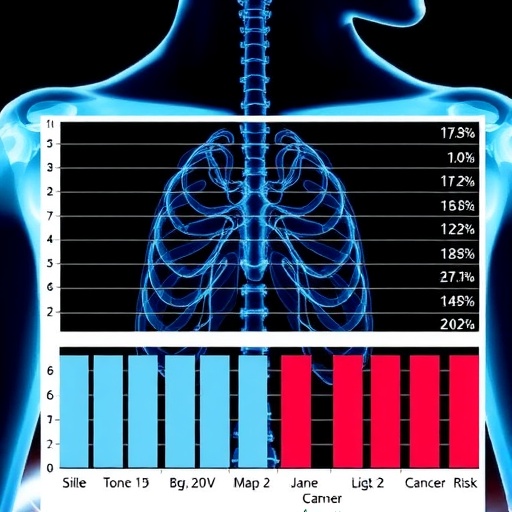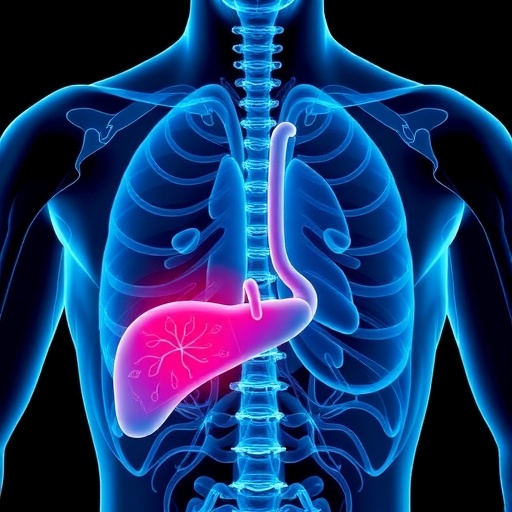PROTECT YOUR DNA WITH QUANTUM TECHNOLOGY
Orgo-Life the new way to the future Advertising by AdpathwayIn the intricate domain of healthcare, the leadership styles adopted by managers can have profound implications on the performance and motivation of nursing staff. A recent study conducted by Alsadaan, Ramadan, Alqahtani, and colleagues delves into this critical intersection, examining the mediating role of intrinsic motivation in the context of Laissez-Faire leadership and its impact on nurses’ task performance. This research is specifically designed to solve the puzzle of how different leadership styles shape the emotional and professional landscape within nursing teams, which are the backbone of patient care delivery.
Laissez-Faire leadership, characterized by a hands-off approach, emphasizes minimal supervision and a high degree of autonomy for team members. In nursing, where critical decisions often need to be made swiftly, this leadership style can be double-edged. On one hand, it may empower nurses, granting them the freedom to make decisions and perform tasks based on their expertise. However, without adequate guidance, it can also lead to challenges, including feelings of disengagement or lack of direction among nursing professionals. Understanding the nuances of this leadership style is crucial in optimizing nurse performance and ultimately patient outcomes.
The researchers embarked on a structured cross-sectional study, aiming to uncover the intricate relationships among Laissez-Faire leadership, intrinsic motivation, and nurses’ task performance. This study utilized robust methodologies to gather data from nursing professionals across various healthcare settings, ensuring a representative sample that could provide valuable insights into these dynamics. The inclusion of intrinsic motivation as a mediating variable is a pivotal aspect of this research, as it highlights the internal drive of nurses to perform well, independent of external influences or pressures.
Intrinsic motivation, defined as engaging in an activity for its inherent satisfaction rather than for some separable consequence, plays a critical role in nursing practice. Nurses who are intrinsically motivated are more likely to be engaged, committed, and enthusiastic about their work. This internal drive not only influences their individual performance but also has a ripple effect on team dynamics and the quality of patient care provided. The investigation into how Laissez-Faire leadership can either foster or hinder this type of motivation is essential for developing effective management strategies in healthcare environments.
The findings of the study present compelling evidence regarding the relationship between Laissez-Faire leadership and nurses’ task performance, elucidating the direct and indirect pathways through which intrinsic motivation operates. As Laissez-Faire leaders often adopt a more relaxed approach, it can create an environment where nurses feel empowered to take initiative, potentially enhancing their intrinsic motivation. This elevation in motivation may subsequently lead to improved performance on the job, characterized by increased efficiency and a higher quality of care.
Despite the potential benefits of Laissez-Faire leadership, the study underscores the importance of context. In situations where nurses require clarity and structure to navigate their daily responsibilities, a lack of guidance can result in confusion and decreased motivation. The delicate balance between autonomy and support is vital in determining how effective Laissez-Faire leadership can be. Thus, the leadership approach must be tailored to the specific needs of the nursing team and the operational challenges they face.
Moreover, the research suggests that intrinsic motivation serves as a protective factor in maintaining high performance levels, even under the less structured environment fostered by Laissez-Faire leadership. This aspect is particularly significant, emphasizing not only the need for effective leadership styles but also the cultivation of a motivational climate where nurses feel valued and empowered in their roles. Strategies to enhance intrinsic motivation can serve as a counterbalance, mitigating the potential downsides of laissez-faire approaches by fostering a sense of purpose and belonging among nursing staff.
The study’s contribution to the existing literature is significant, adding depth to the understanding of leadership dynamics within nursing practice. By illuminating the mediating role of intrinsic motivation, the findings encourage healthcare administrators and managers to think critically about how they can foster environments conducive to intrinsic motivation. Training programs focused on empowering nurses, alongside incentives aligned with professional development, can help unlock this internal drive, benefiting both staff and patients.
In practical terms, the results also imply that effective training for healthcare leaders about the implications of their leadership style on nurse motivation and performance can help optimize work environments. Leaders should be equipped with the necessary skills to recognize the signs of disengagement and lack of motivation in their staff, allowing them to adapt their approach as needed. By engaging in open communication and fostering a collaborative culture, leaders can create a support system that amplifies the positive effects of Laissez-Faire leadership, ensuring that nurses thrive in their roles.
As healthcare continues to evolve, understanding the nuances of leadership styles is increasingly important. The insights derived from this study inform not only nursing practice but also the broader dialogue around leadership in healthcare. As our understanding deepens, it becomes clear that the future of nursing relies heavily on fostering environments where intrinsic motivation is nurtured, bridging the gap between leadership styles and enhanced task performance.
Ultimately, Alsadaan et al. have provided a vital examination of the complex interplay between leadership, motivation, and performance. Their findings invite ongoing exploration of how best to support nurses while balancing autonomy and structure—a challenge that remains at the forefront of healthcare management discussions. As the sector progresses toward more holistic and effective methodologies, the consideration of intrinsic motivation will undoubtedly be a key factor in shaping the future of nursing and patient care.
In summary, the exploration of Laissez-Faire leadership and its implications on nurses showcases the critical need for adaptive leadership in healthcare. The study highlights a necessary shift towards understanding the importance of intrinsic motivation, prompting healthcare leaders to cultivate an environment that promotes both autonomy and support. As nurses continue to navigate the complexities of their roles, understanding these dynamics is essential for ensuring they are equipped to deliver the highest standard of care.
Subject of Research: The mediating role of intrinsic motivation in Laissez-Faire leadership and nurses’ task performance.
Article Title: Examining the mediating role of intrinsic motivation in Laissez-Faire leadership and nurses’ task performance: a cross-sectional study.
Article References:
Alsadaan, N., Ramadan, O.M.E., Alqahtani, M. et al. Examining the mediating role of intrinsic motivation in Laissez-Faire leadership and nurses’ task performance: a cross-sectional study.
BMC Nurs 24, 1195 (2025). https://doi.org/10.1186/s12912-025-03869-1
Image Credits: AI Generated
DOI: 10.1186/s12912-025-03869-1
Keywords: Laissez-Faire leadership, intrinsic motivation, nursing performance, healthcare management, leadership styles, nursing practice.
Tags: autonomy in nursing decisionscross-sectional study in healthcaredecision-making in healthcareemotional landscape in nursinghealthcare leadership stylesimpact of leadership on motivationIntrinsic motivation in nursingLaissez-Faire leadership effectsnurse engagement challengesnursing staff performanceoptimizing nurse performancepatient care delivery


 11 hours ago
2
11 hours ago
2





















 English (US) ·
English (US) ·  French (CA) ·
French (CA) ·